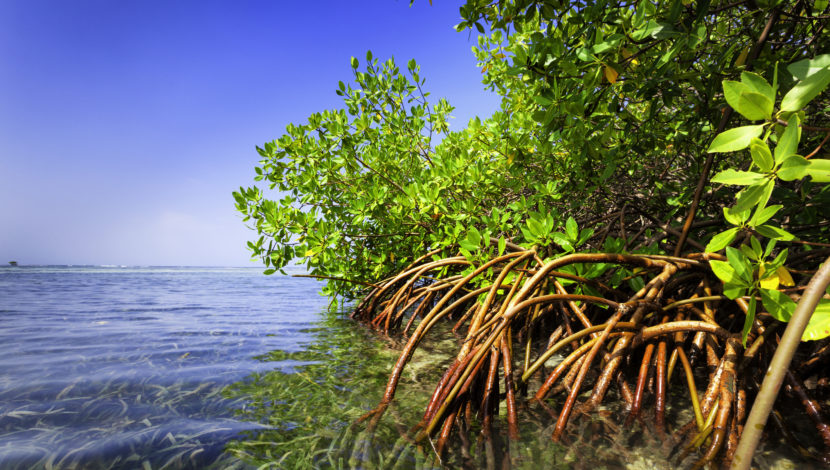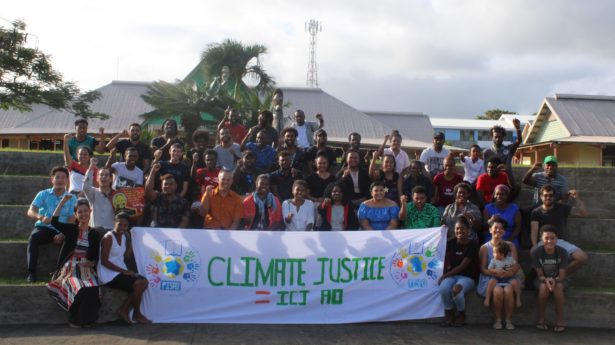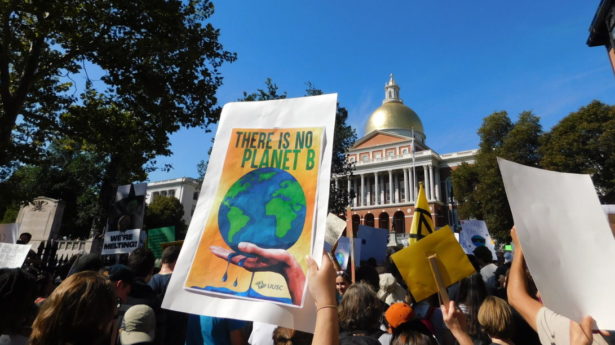The Unitarian Universalist Service Committee advances human rights through grassroots collaborations.
3 Facts About The World’s Oceans

June 7, 2022
Wednesday, June 8 is World Ocean’s Day, a time to acknowledge and appreciate the earth’s five oceans—the Atlantic, Pacific, Indian, Arctic, and Antarctic (Southern). However, with the threat of climate change, our oceans are in peril. UUSC is working with communities in the Pacific to address the impacts of the climate crisis and work towards solutions for a healthier planet. Here are three facts about our world’s oceans and how they impact our Pacific partners—and the world:
The planet’s oceans absorb 90% of the earth’s heat
With oceans covering more than 70% of the earth, these large bodies of water also soak up a tremendous amount of heat. As greenhouse gas emissions cause the earth to get warmer, our oceans are heating up also, which can throw ecosystems out of balance. For example, higher temperatures in the Pacific Ocean are causing a mass migration of fish to the “cooler” Atlantic Ocean. Several Pacific islands—which rely on fishing as a key sustainer of their economies—will see a severe drop in their hauls. Changes in water temperature also impact the growth of fish, meaning that fish may become smaller over time; with changes in the environment there will be fewer and smaller fish for consumption.
The nation of Fiji—home to several UUSC partners—is experiencing a rapid increase in temperatures around the islands, so much so that the tuna population is dwindling as the fish move east. This shift in the tuna population will impact food access as well the economy of the Fiji islands.
Mangroves are a life-saving plant for Pacific islands
Mangroves are a saltwater plant that provide several significant benefits for local ecosystems. The large plants’ roots stick up out of the mud they grow in, allowing the plants to be home to fish, birds, and other animals (mangrove trees often look like they are on stilts!). Mangroves also absorb a tremendous amount of carbon dioxide, which can help maintain the balance of island ecosystems.
With 80 different species, this tropical plant can help preserve the shorelines of Pacific islands. Mangrove forests’ roots can slow down tidal waters and drastically reduce soil erosion. Mangroves are also the only species of tree that can absorb and accept saltwater, making it a strong contributor to island ecosystems. Along with attracting many species of fish and birds, the leaves of mangroves are a source of sustenance for several types of organisms. Incoming tides help spread the many nutrients in mangroves to neighboring organisms like oysters. Mangroves serve as a bit of a barrier between saltwater and freshwater sources; they prevent saltwater from contaminating freshwater sources and also filter chemicals like nitrates and phosphates, distributing those chemicals to other plants and animals.
The key benefit of mangroves in the context of climate change is that these trees are an effective method of minimizing sea level rise. UUSC partners in the Pacific have planted mangrove trees along the coastlines to balance ecosystems and keep rising seas at bay.
In a little less than 80 years, 200 million people will live below sea level.
By 2100, hundreds of millions of people will be living in communities that are well under water. Imagine cities like Houston and Miami being completely overwhelmed the Atlantic ocean! It’s estimated that 13 million people in the United States will be displaced from their communities; China could easily see more than 40 million people displaced.
Rising sea levels flood communities, disrupt ecosystems, cause massive displacement, and radically alter our landscapes and living conditions. With greenhouse gases causing global warming, which in turn causes rising sea levels, it’s only a matter of time before our communities are under threat from flooding and being overtaken by our oceans.
We still have time to address the serious concerns brought on by the climate crisis. If you haven’t already, consider asking your congressperson to support a commonsense plan to deal with the climate crisis or urge President Biden to seek an advisory opinion from the United Nations on ways to drastically reduce the United States’ participation in the climate crisis.
Though the impacts of climate change are dire, they don’t have to be a death sentence. We owe it to future generations to preserve and protect the earth!
Photo Credit: iStock—apomares

